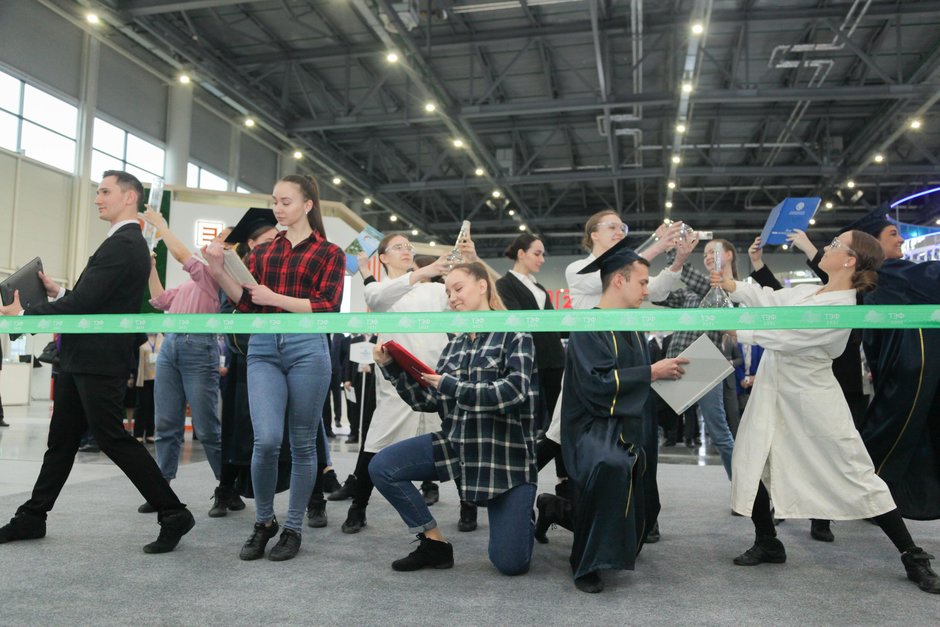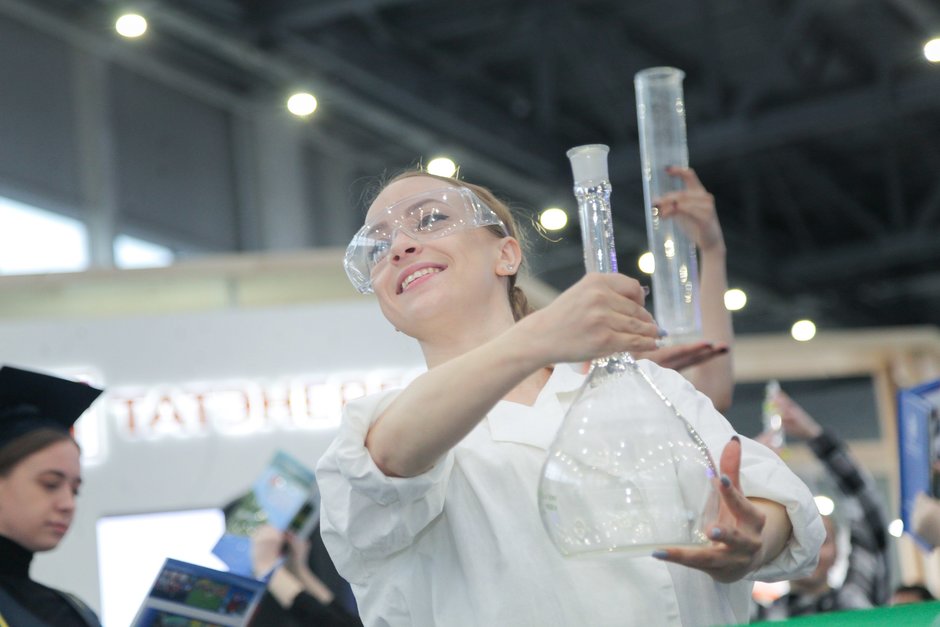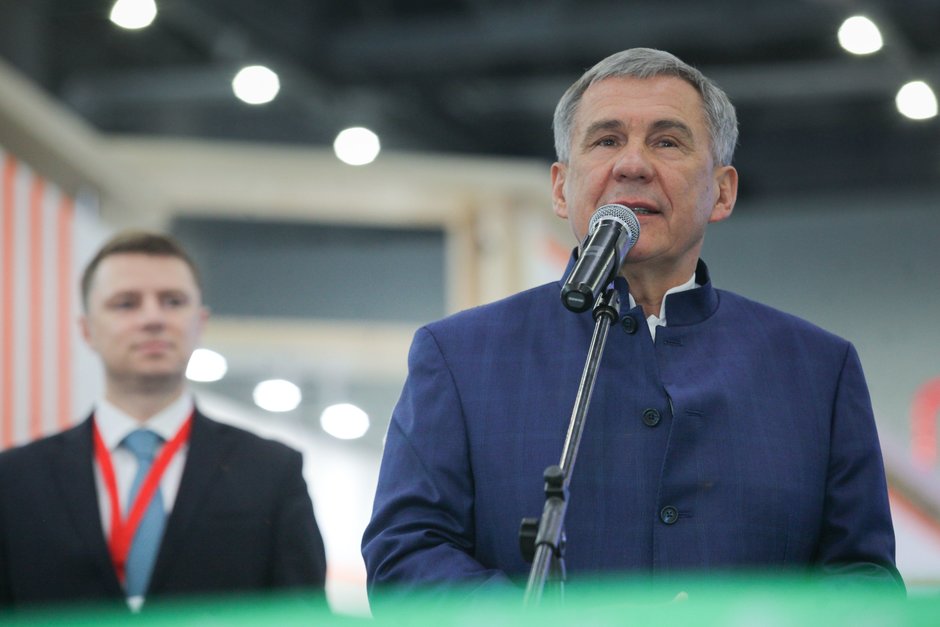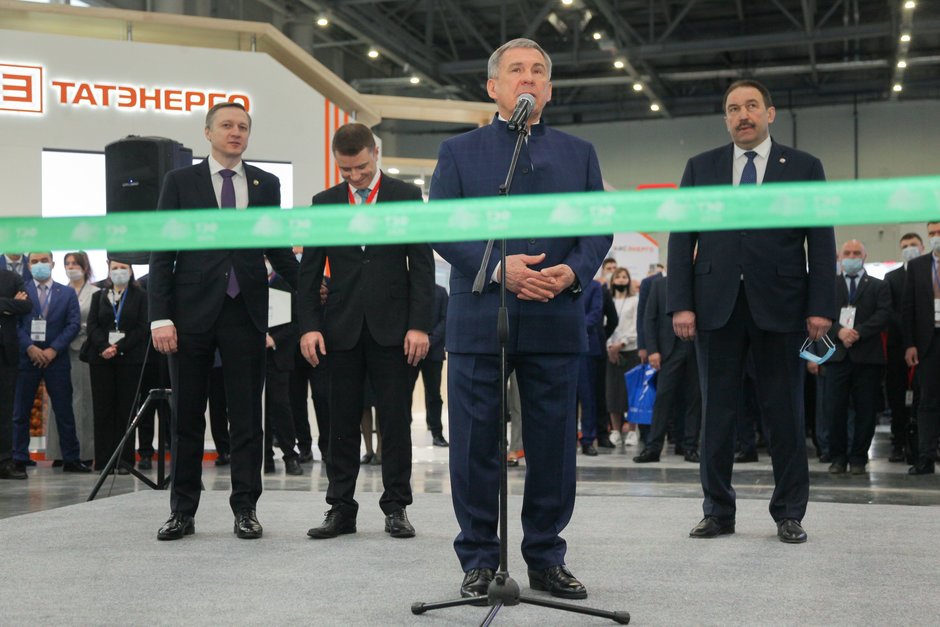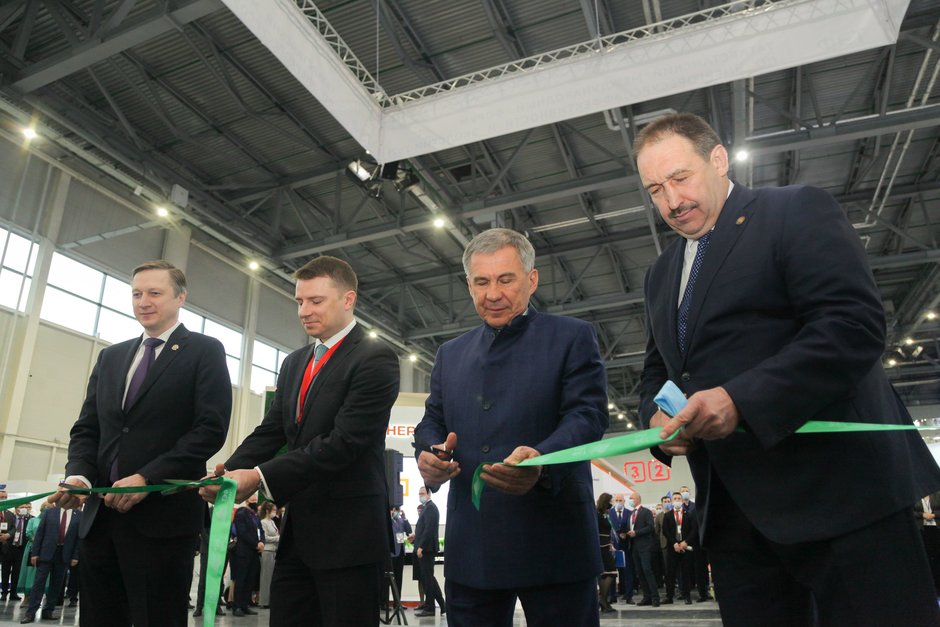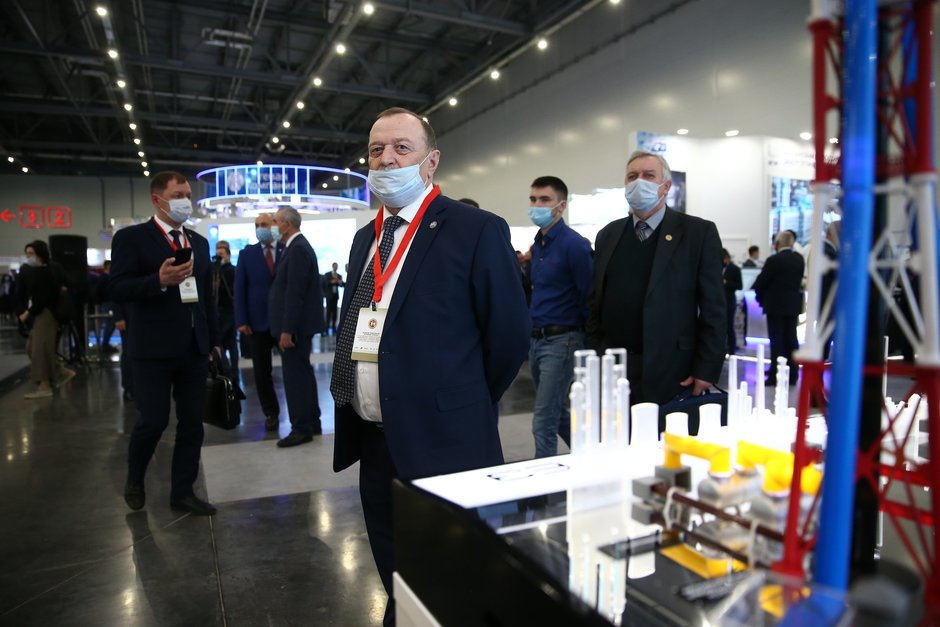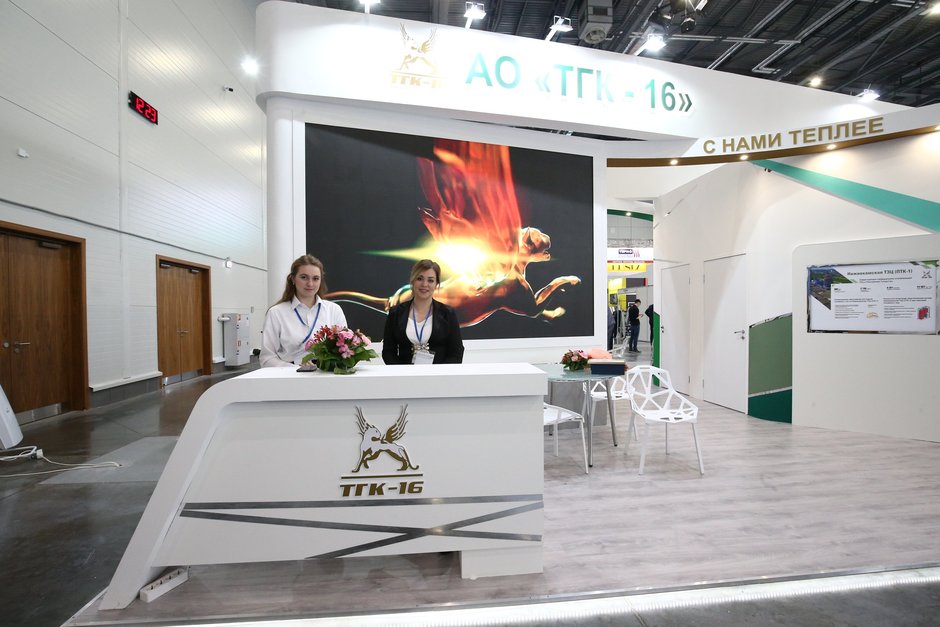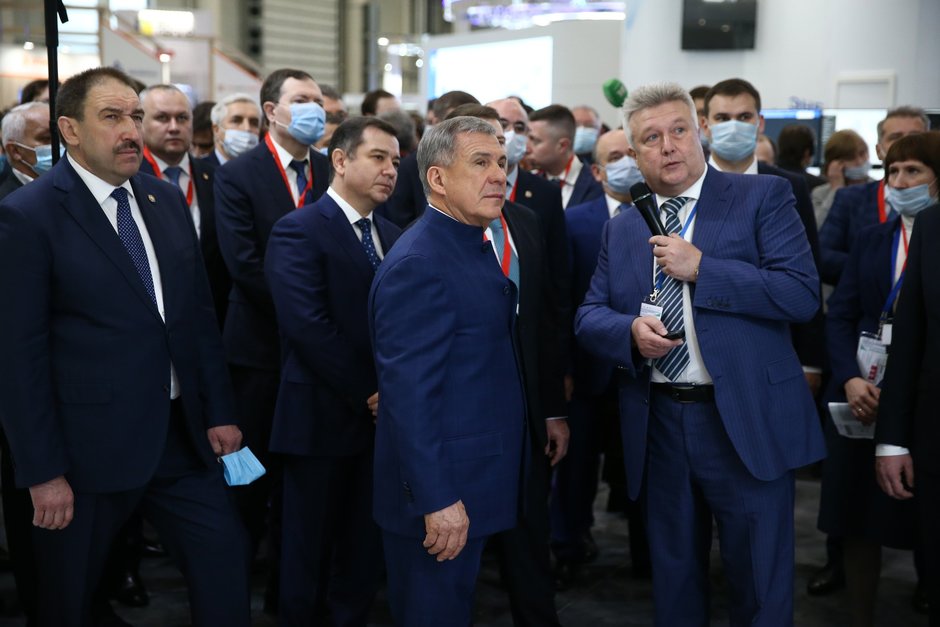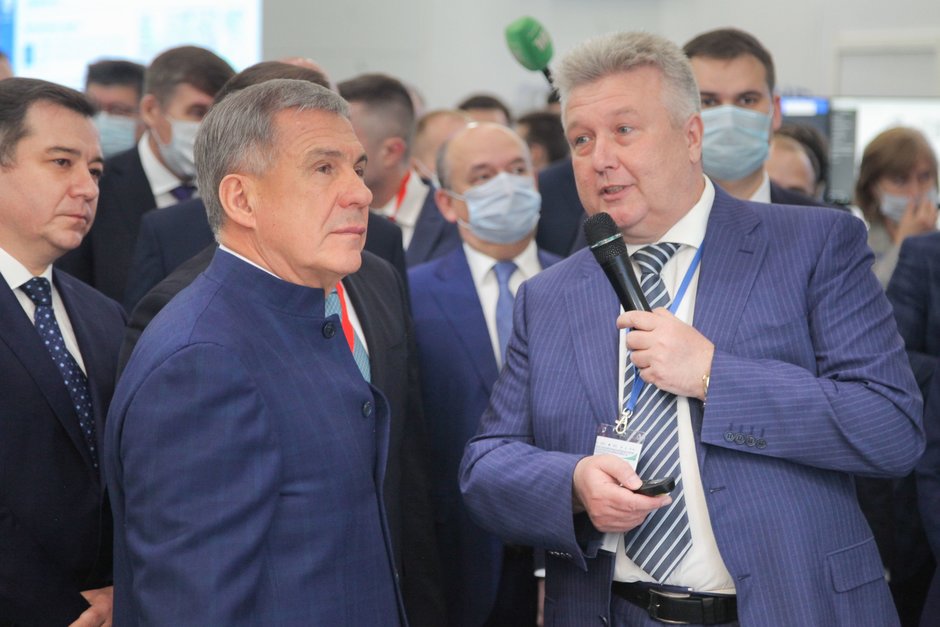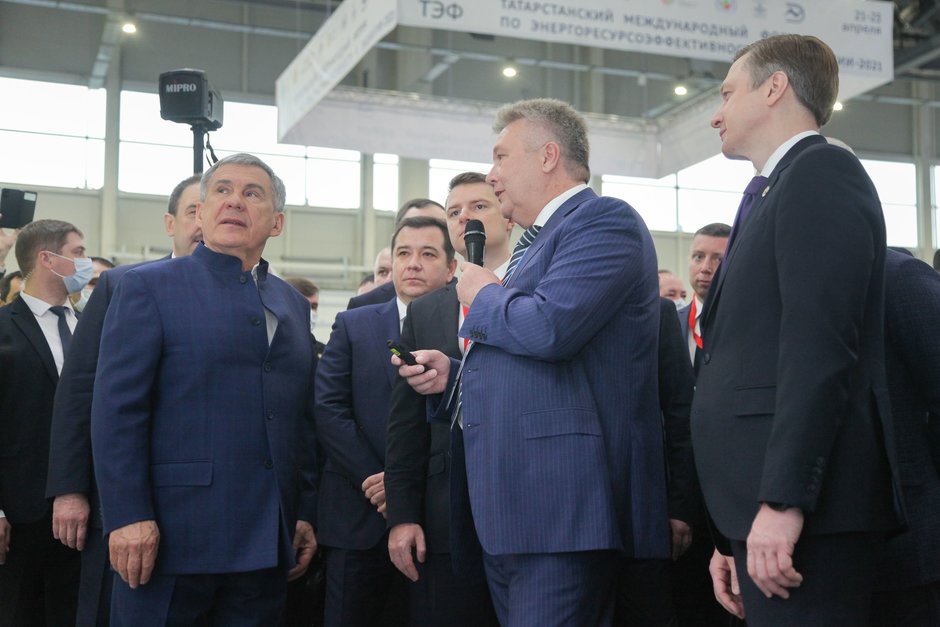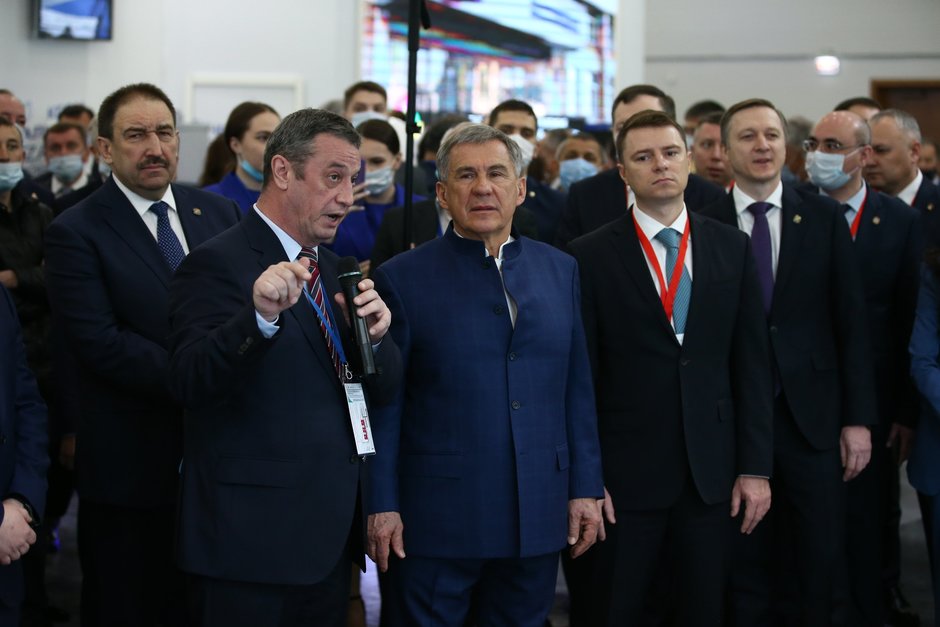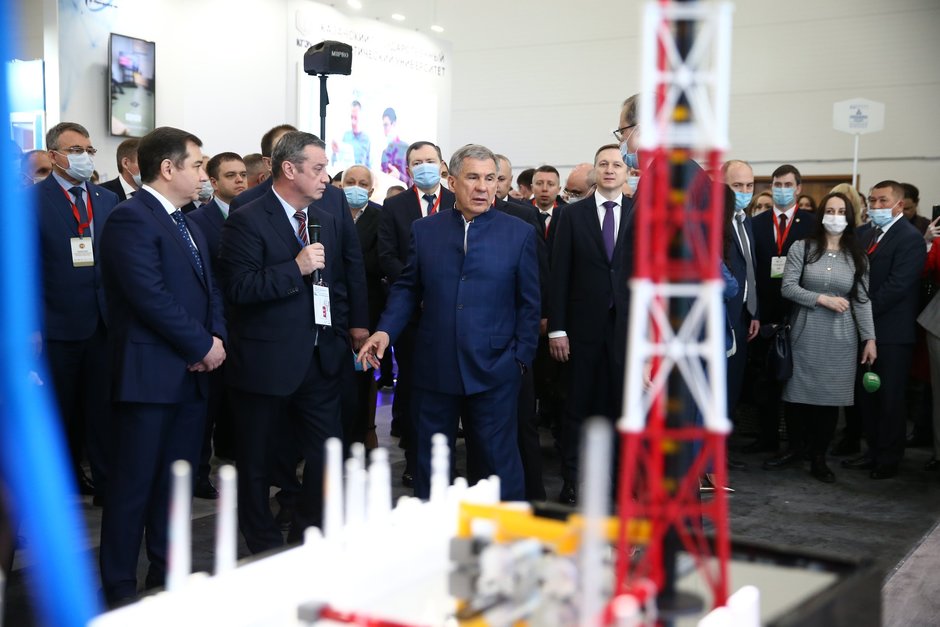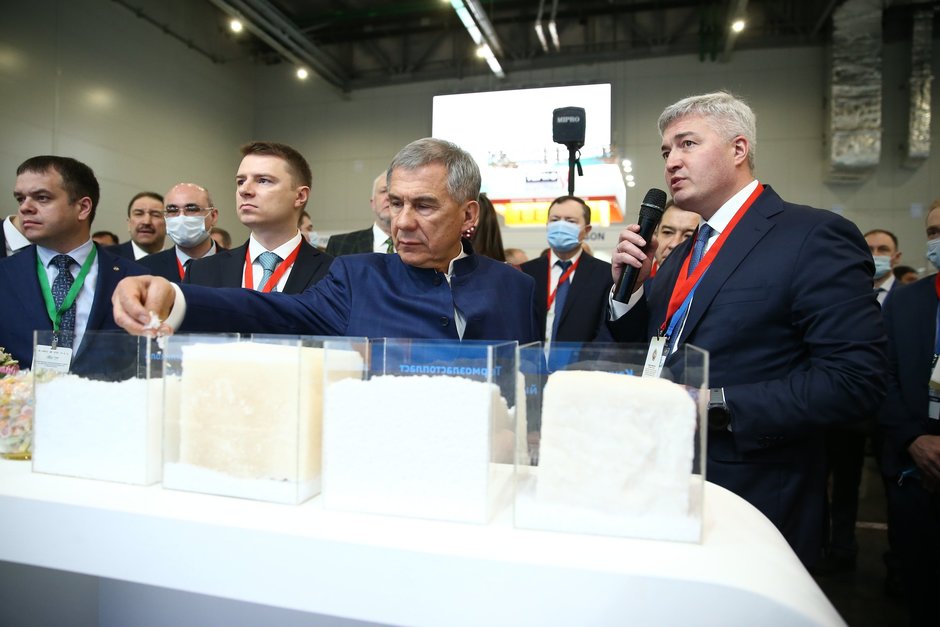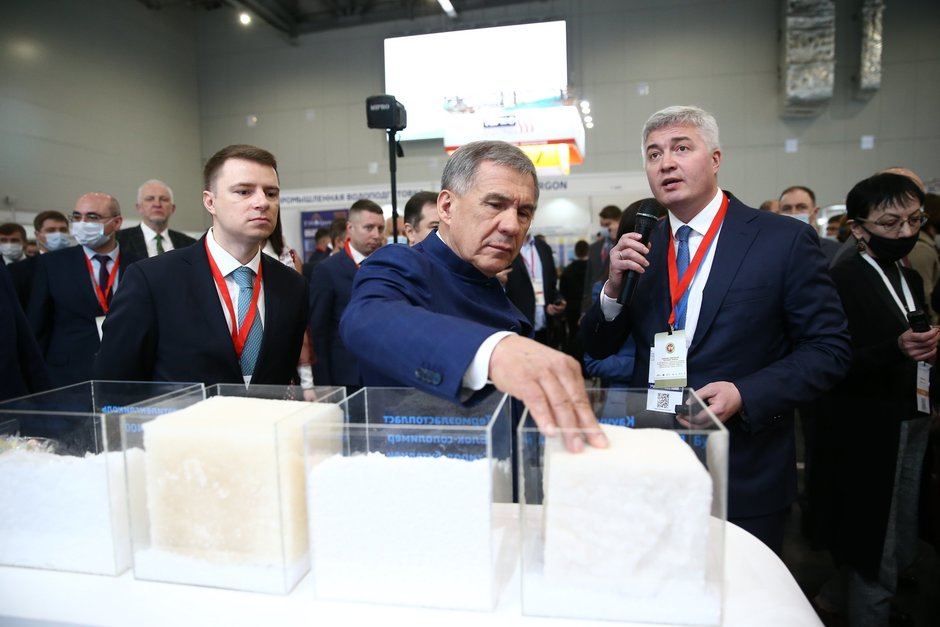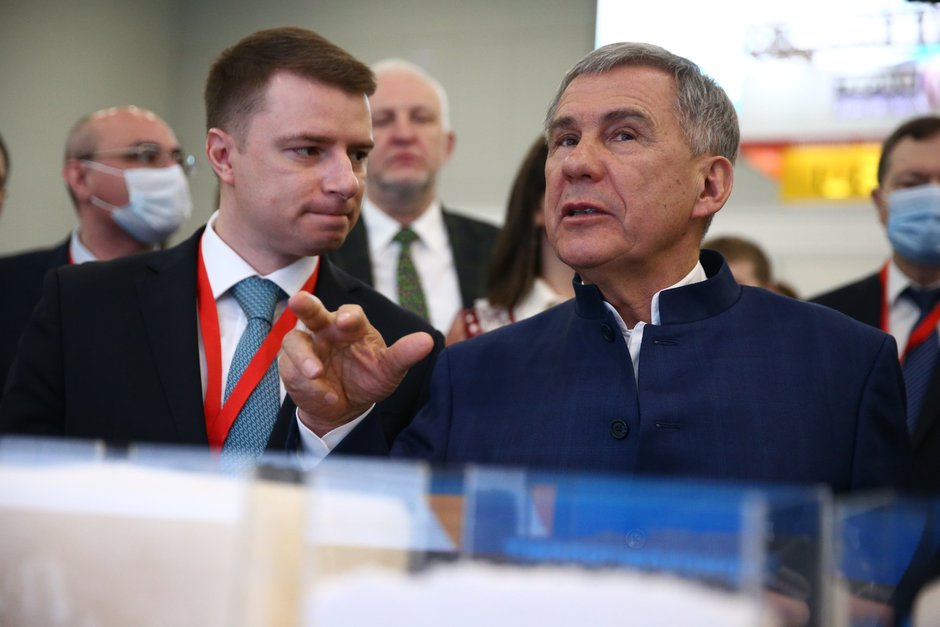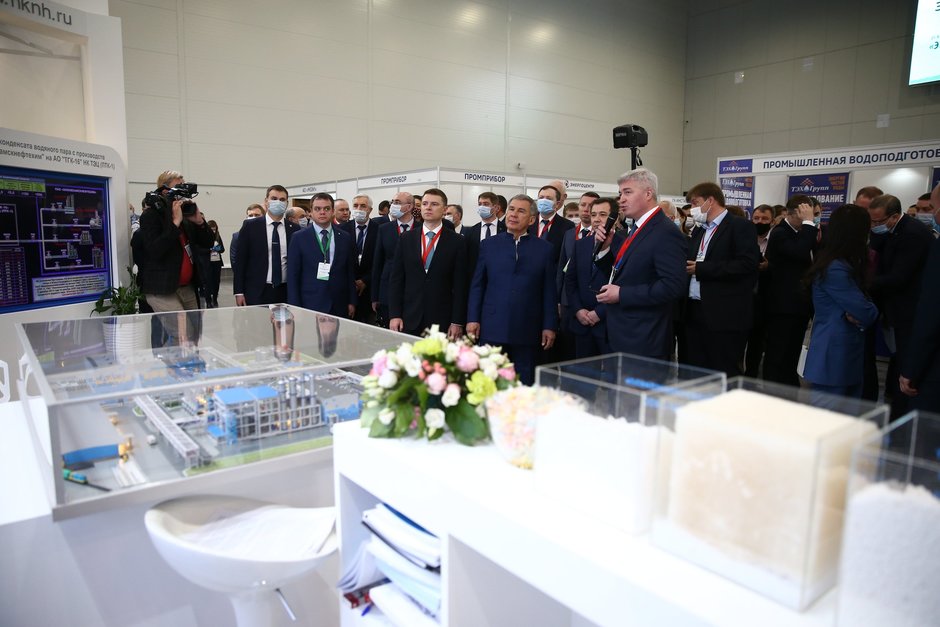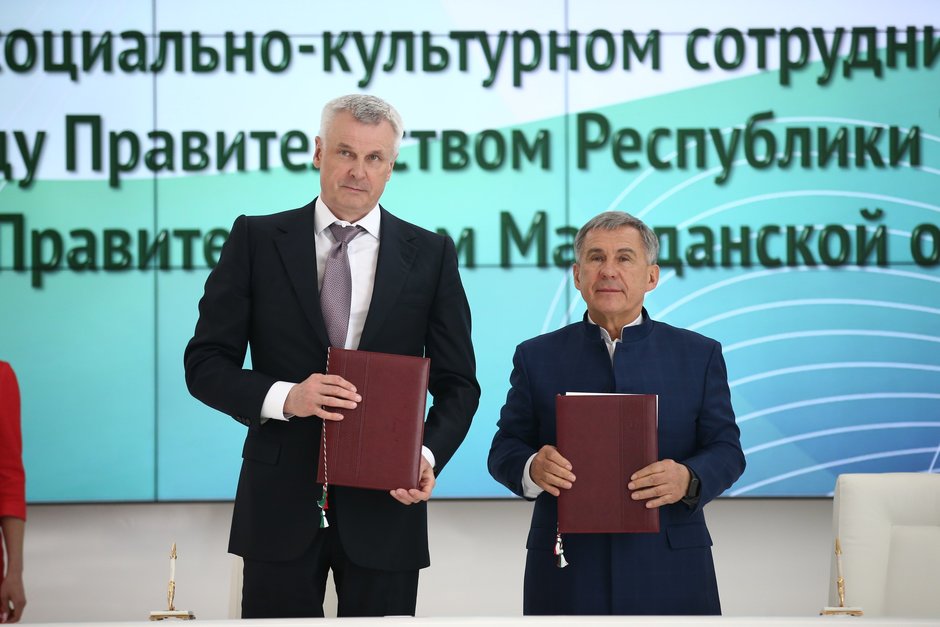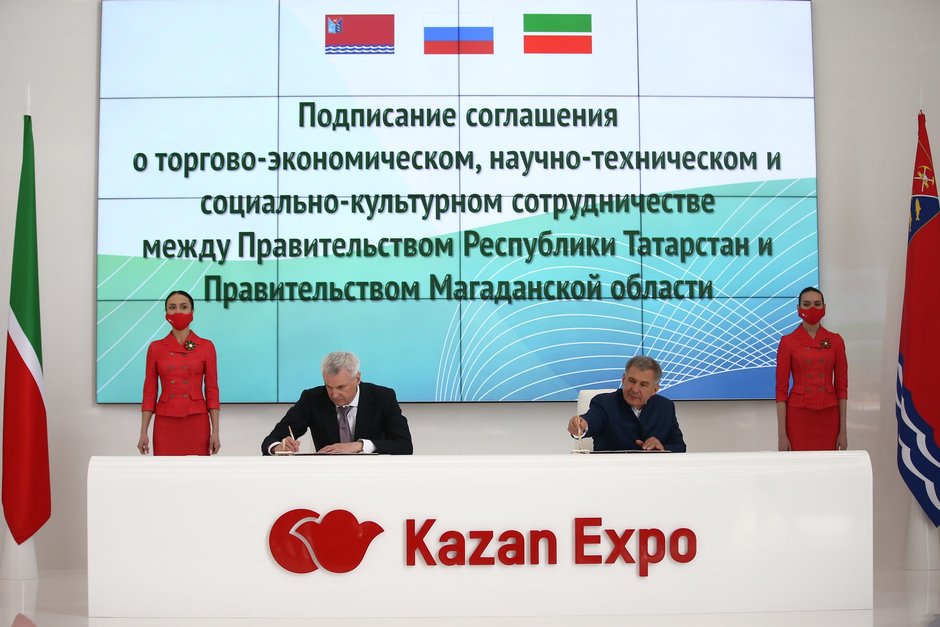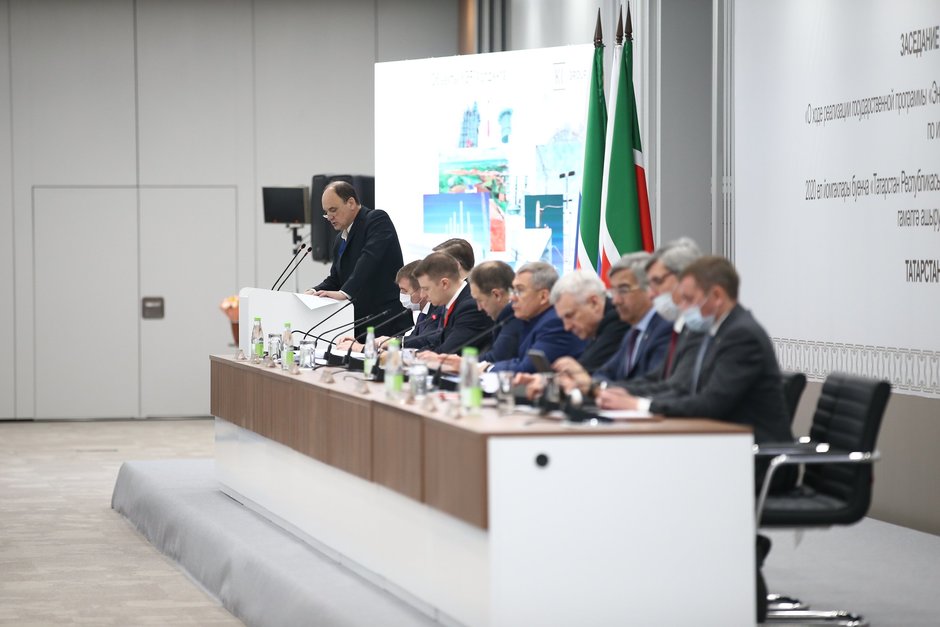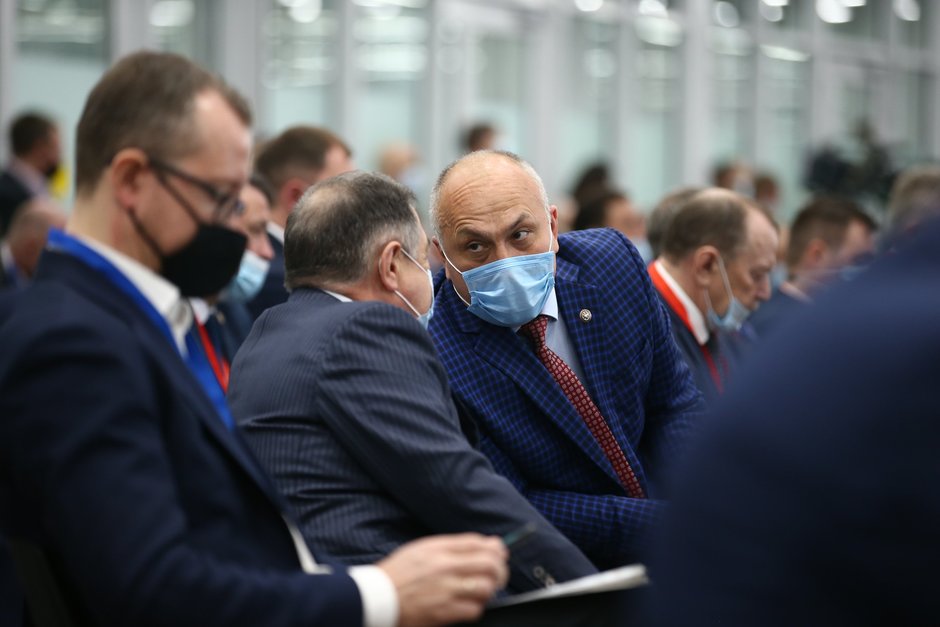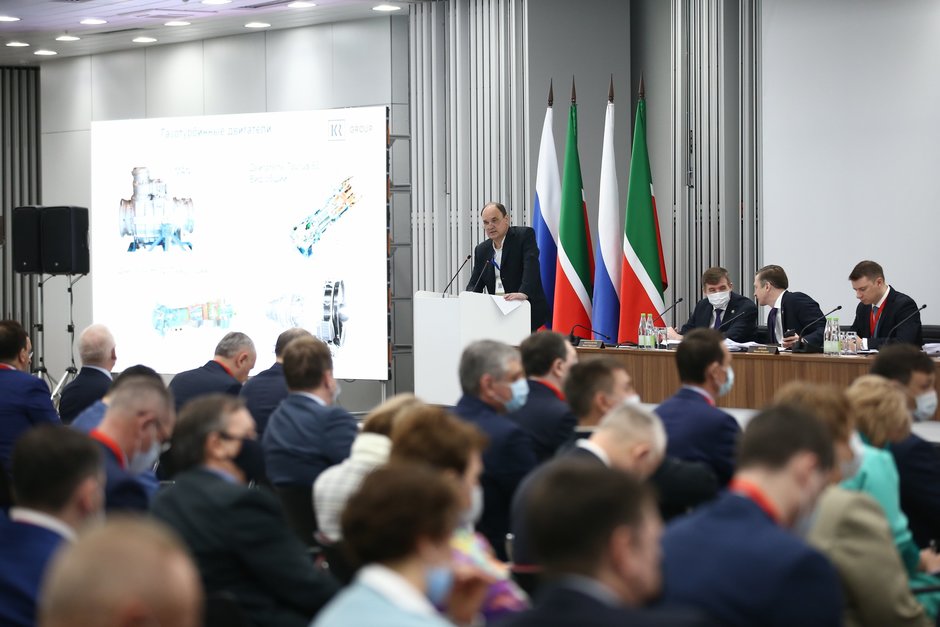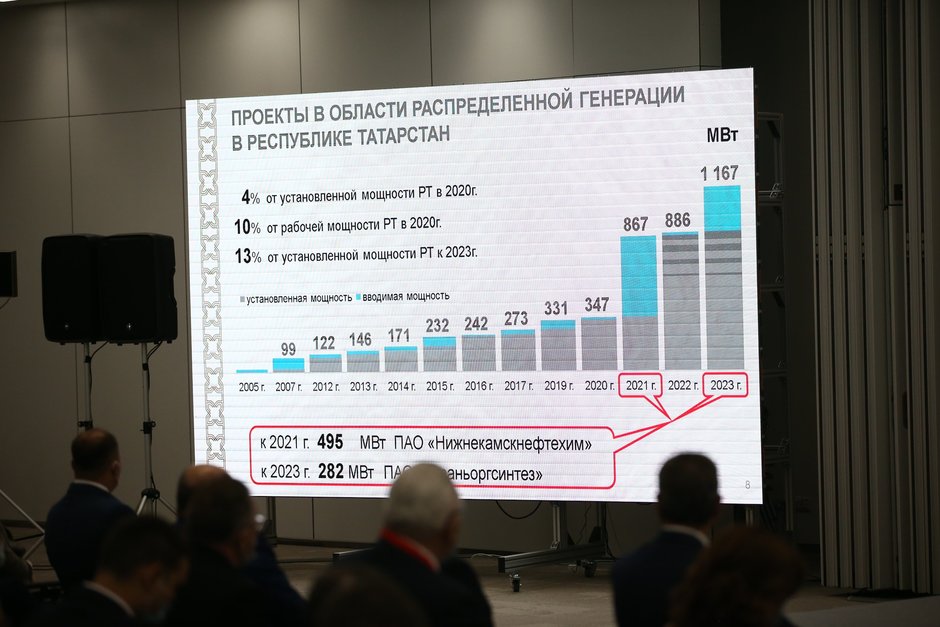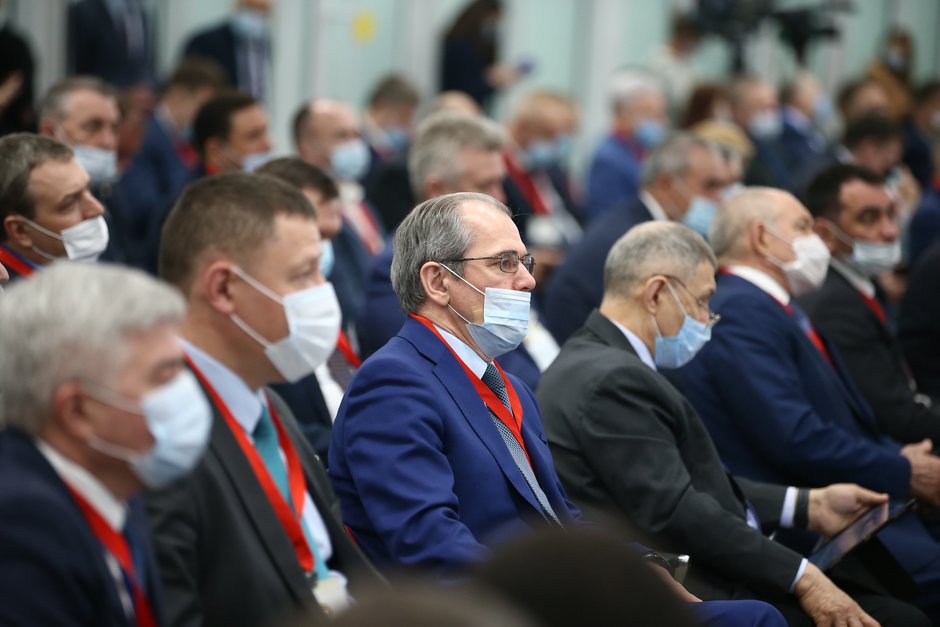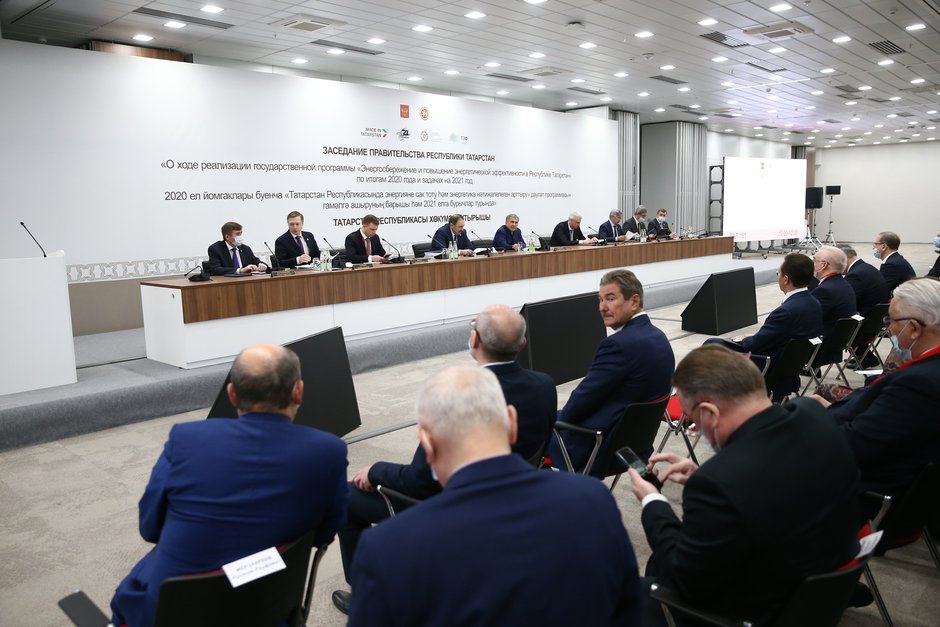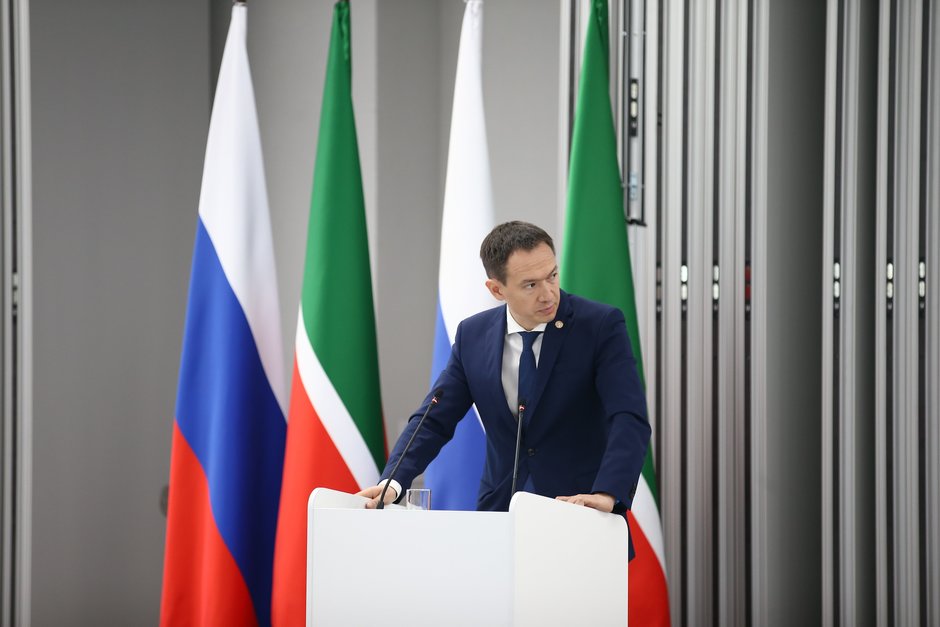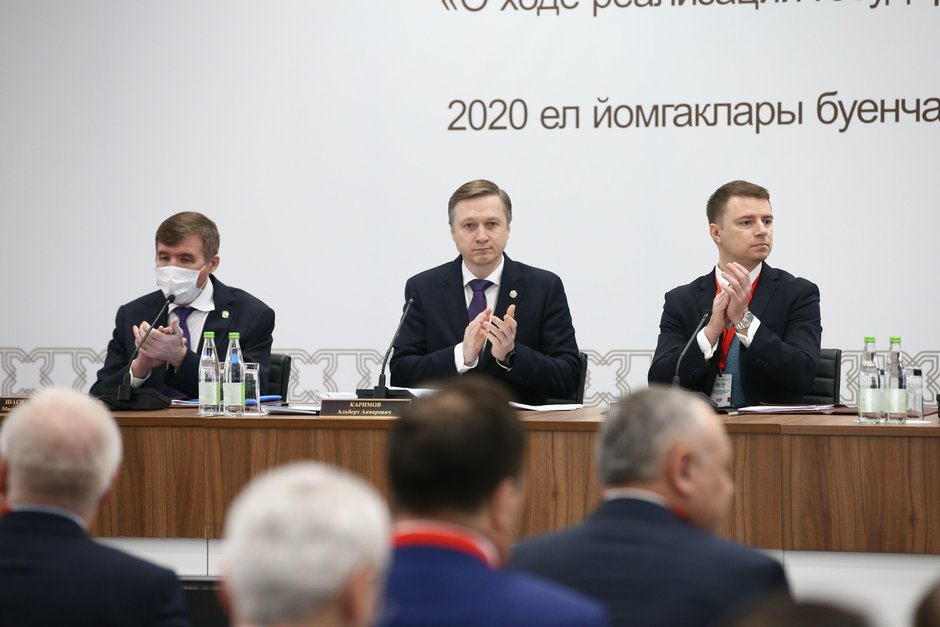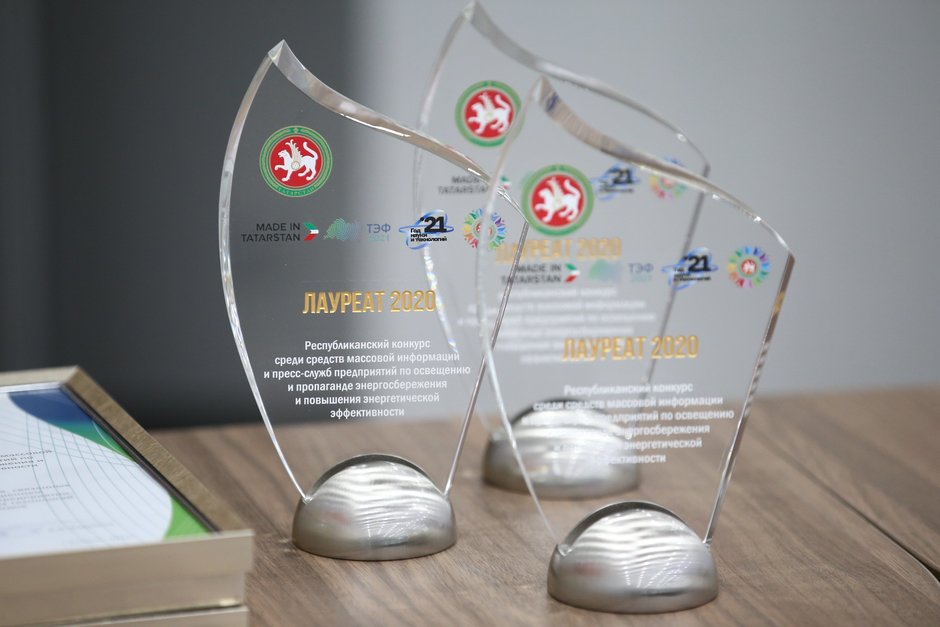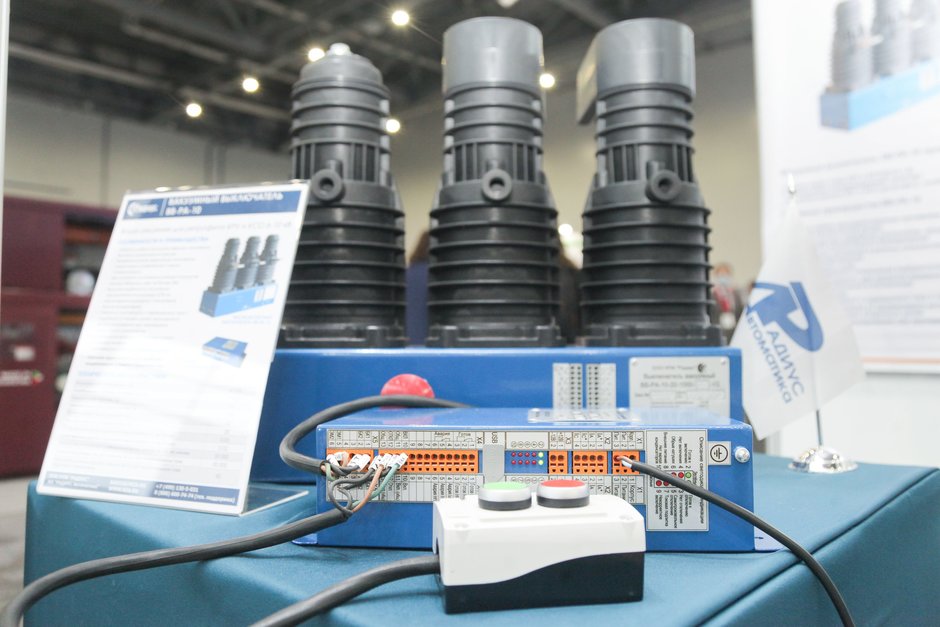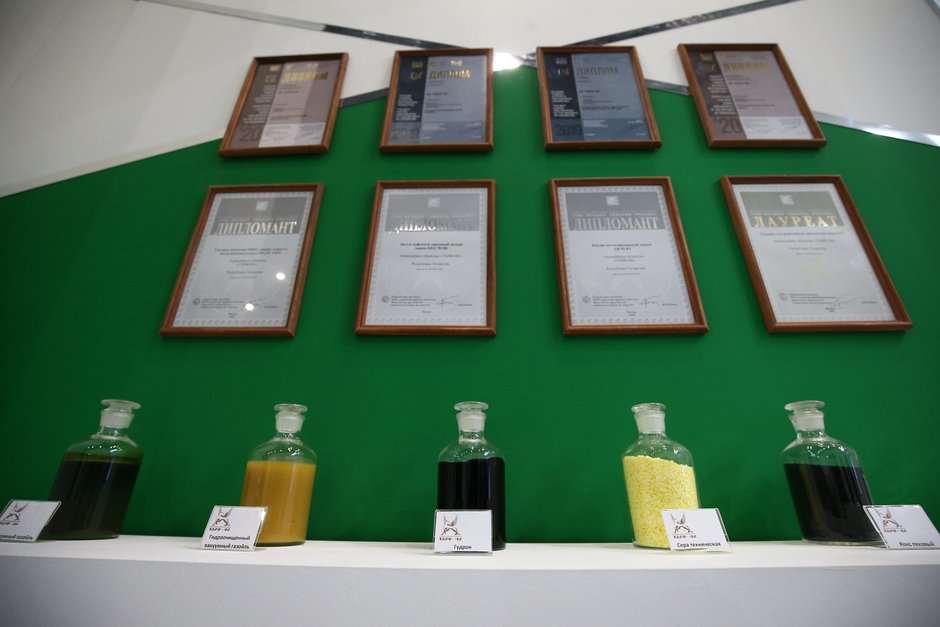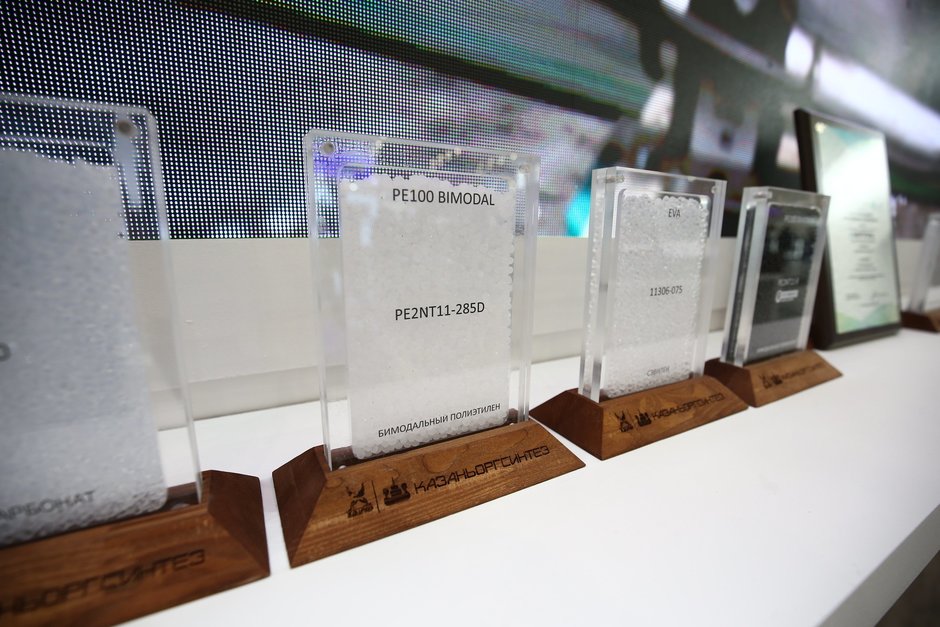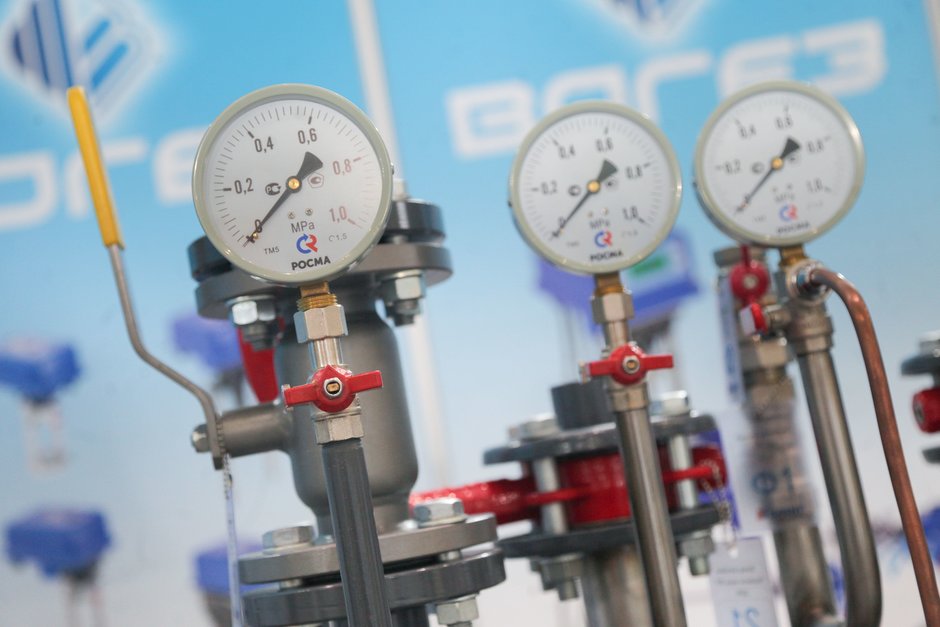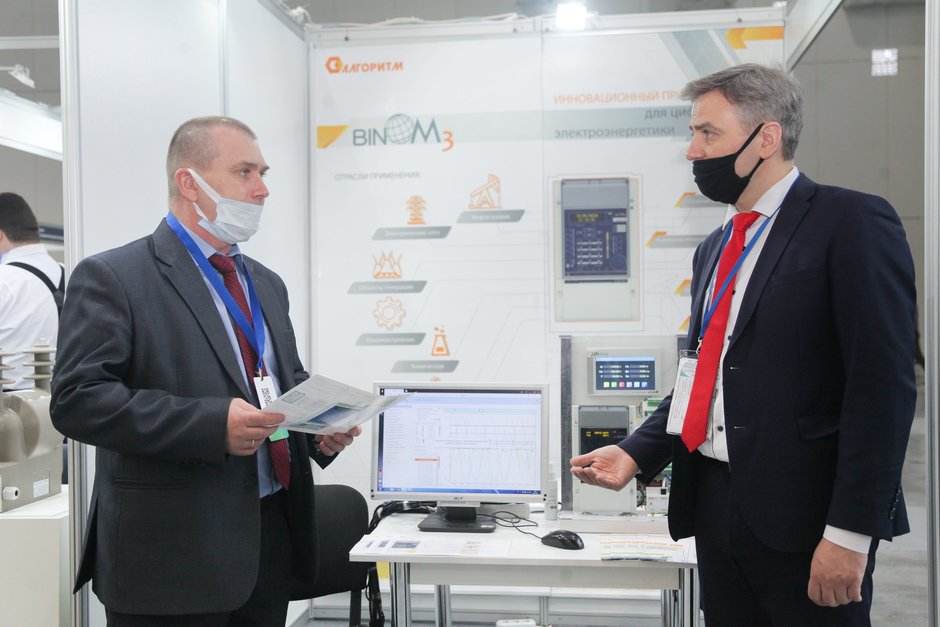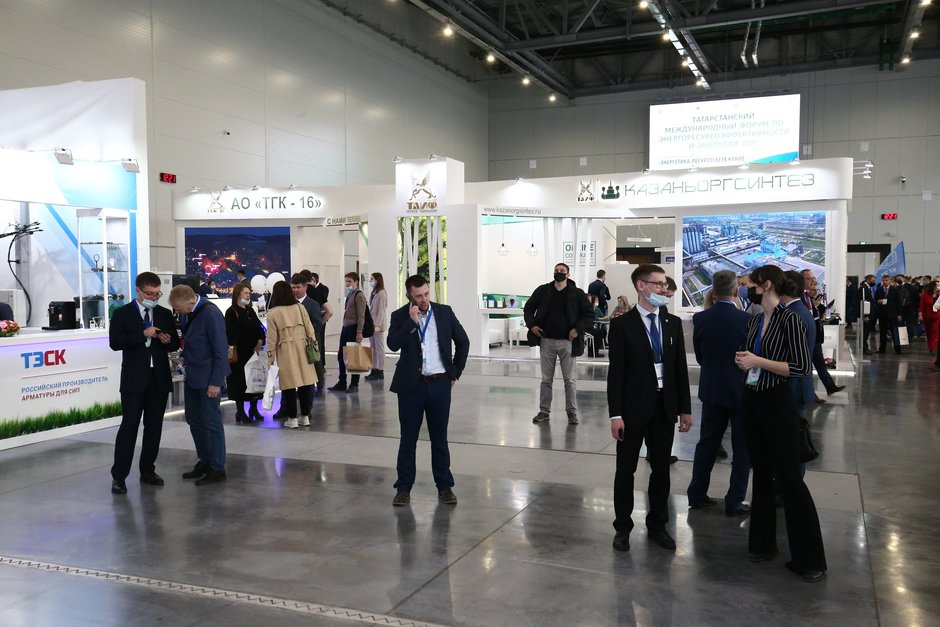Rustam Minnikhanov: 'The flow is not on our side so far, but capacities allow us to outperform'
Kazan Expo hosted Tatarstan International Forum on Energy Efficiency and Ecology on 21-23 April
“The efficiency of our generating stations does not yet meet the challenges we are facing. There are also issues concerning the grid economy, “Tatarstan President Rustam Minnikhanov said at the plenary session of the Tatarstan International Forum on Energy Efficiency and Ecology on 22 April. The distortions can be corrected with the launch of new capacities. “The projects (of generation) that are being implemented at Kazanorgsintez and Nizhnekamskneftekhim will allow us to find a balance in the energy system," the head of the republic expressed hope, as if unravelling a complex knot of relations between energy players.
Big energy and cars from the future
Kazan Expo hosted the Tatarstan International Forum on Energy Efficiency, where the latest achievements in the field of large traditional generation and “green” energy were demonstrated. The forum was attended by about 200 different companies from different regions of the country. Although the forum is considered a purely industry-specific energy event, it can safely be considered a meeting place for large businesses of the republic, because Tatarstan's energy companies are integrated into holding companies.
In particular, TGC-16 presented a project for the use of the HRCC fuel gas as gas fuel on the power boilers of the Nizhnekamsk CHPP (PTK-1). The Grid Company talked about 'smart' networks, the Kazan Power Engineering University — about the situation centre for heat and power engineering. The exhibition showcase was also enlivened by cars from the future: electric cars from prestigious brands, chargers, hydrogen units, and even a life-size MTZ tractor running on liquefied gas. This team of “new ones” at the exhibition most interested and surprised the guests.
“If earlier people talked about hydrogen as something fantastic, today it is a reality," the president got animated every time he approached the unusual exhibits. “Electric cars, LNG fuel, these things were considered a distant prospect, but in our republic they have become a reality," Minnikhanov boasted, talking to Moscow guests: Deputy Minister of Industry and Trade Mikhail Ivanov and head of the National Gas Engine Association Vasily Zinin.
The exhibition has long become a regular event, and this year it has been held for the 21st time. . On 22 April, the forum hosted a meeting of the government of Tatarstan with a report on the implementation of the state programme 'Energy Saving and Energy Efficiency Improvement in the Republic of Tatarstan by the end of 2020 and tasks for 2021'. Deputy Prime Minister of Industry and Trade of the Republic of Tatarstan Albert Karimov made a report.
Outflow of Tatarstan kilowatts
In his speech, the main problems of post-covid energy were outlined, which in the future may become triggers of severe negative consequences for the economy. According to Albert Karimov, last year the volume of energy consumption decreased by 5%, but its production within the republic fell by 18%, falling back to the level of five years ago. According to the head of the ministry of industry and trade of the Republic of Tatarstan, the Tatarstan energy system produced 24 billion kWh, while the demand amounted to 29 billion kWh. Negative dynamics persisted all months of the year. For comparison, electricity generation in Russia decreased by only 3%.
“Our plants produced less electricity than the average in Russia," said Albert Karimov, adding that the biggest decline occurred at the Zainskaya GRES. Here, electricity generation fell by half, but due to non-market mechanisms in the energy sector, the GRES received positive financial results.
The main danger is that a decline in energy production leads to an increase in the flow. And the inflow of power from outside — from the FGC UES. “The flow is going to increase more than 4 times," the head of the ministry of industry and trade of the Republic of Tatarstan sounded the alarm. “And this means that in the future we will increase the payment in favour of the Federal Grid Company. Grid Company will have to include the cost of paying for these services 3,5 times more than now. This may lead to an increase in the tariff," Albert Karimov warned. He called for thinking “about new schemes of interaction in the whole republican energy system”. Otherwise, it will create “prerequisites for consumers to switch to their own sources of energy supply”, he added.
Unique project for fuel gas use in Tatarstan
During the meeting, it was also announced that the specific consumption of fuel and energy resources for electricity supply in Tatarstan in 2020 decreased by 4% compared to the level of 2019 and amounted to 278 gсe/kWh. While the energy strategy of the Russian Federation for the period up to 2035 assumes a reduction in the specific fuel consumption for electricity supply by 2024 to 285,4 gce/kWh and by 2035 to 255,6 gce/kWh.
The Kazan CHPP-3 of TGC-16 has one of the best indicators of the specific consumption of equivalent fuel. In 2020, it decreased by 3% compared to 2019 and amounted to 212 gce/kWh.
The company systematically solves technological and environmental issues, systematically implementing comprehensive modernisation programmes. For example, cooperation with TAIF-NK JSC enabled to implement the unique project for the republic: to use HRCC fuel gas as gas fuel on the power boilers of the branch of TGC-16 JSC — Nizhnekamsk CHPP (PTK-1).
During the tour of the exhibition, Director General of TGC-16 JSC Eduard Galeev told Rustam Minnikhanov that the construction of the new gas distribution plant and a gas pipeline from the Heavy Residue Conversion Complex to the Nizhnekamsk CHPP-1 began in 2016.
“Gas, previously burned by flares, was used as fuel for thermal power plants. This made it possible to achieve an economic effect and reduce the volume of emissions of pollutants into the atmosphere. By the results of 2020, it was possible to prevent emissions of nitrogen oxides in the amount of 632 tonnes and more than 275,000 tonnes of greenhouse gases.”
Natural gas is supplied to the Nizhnekamsk CHPP (PTK-1) through three gas pipelines from three gas distribution points. Fuel gas at the gas distribution point of the Nizhnekamsk CHPP (PTK-1) is cleaned from dust particles and mixed with natural gas. After that, the fuel is evenly distributed across all the boilers.
The results of tests of the power boilers of the Nizhnekamsk CHPP (PTK-1) when burning fuel gas in a mixture with natural gas showed no deviations from the norm when using this type of fuel. Besides, it was found that the combustion of fuel gas reduces the temperature of the exhaust gases, which increases the efficiency of the boiler. Environmental indicators have not deteriorated in comparison with the burning of natural gas. The specialists of EnergoNaladka PLC and Energoprogress Design Centre PLC, which conducted the tests, noted that when using natural gas in a mixture with fuel gas, reliable ignition and combustion of fuel gas in the boiler furnace is maintained.
“The increase in the efficiency of boilers when working on a mixture of natural and fuel gases enabled to save 1,369 tonnes of equivalent fuel," said Eduard Galeev about the economic effect.
Last year, the volume of fuel gas supply amounted to 149,9 million cubic metres, or 4,05% of the total volume of fuel burned. In 2021, fuel gas supplies will be increased to 257,7 million cubic metres, which will replace approximately 215 million cubic metres of natural gas.
The project gives the opportunity not only to increase the profitability of TGC-16 JSC and TAIF-NK JSC and the efficiency of using oil and gas raw materials, but also to significantly reduce the discharge of combustible gases to flare units, which further reduces the burden on the environment.
During the forum, the merits of the Nizhnekamsk CHPP (PTK-1) in the implementation of the state energy saving programme in 2020 were awarded with a diploma in the category 'Energy Efficiency as a Development Strategy'. The award was presented to the station director, Sergey Olyunin.
New stations coming soon
According to the head of the ministry of industry and trade of the Republic of Tatarstan, the distributed capacity is 347 MW, or 4% of the installed capacity.
“Taking into account the TAIF programme for the construction this year of the combined-cycle gas plant of 495 MW at Nizhnekamskneftekhim and of 282 MW at Kazanorgsintez by 2023 — these are good and effective projects for TAIF," he said. After their implementation, the total distribution capacity is going to be 13% of the total installed capacity of the power system, or ¾ of the active capacity used.”
“The launch of the distributed generation projects will lead to a decrease in the net supply at the grids of Grid Company," the minister outlined the problem of the “gap” in the chain. “This means that we need to look for ways to optimise the remaining costs. Otherwise, a reduction in the net supply will lead to an increase in the tariff for the network component and will further encourage the transition to own generation," Albert Karimov believes.
“Albert Anvarovich has made a good analysis," Tatarstan President Rustam Minnikhanov said. “So far, the flow is not on our side, but the capacities allow us [to develop].” He acknowledged that there are problems with the grids, but with the launch of new projects, the imbalances in the energy sector will level out. According to him, the generating projects that are being implemented at Kazanorgsintez and Nizhnekamskneftekhim (using gas synthesis), taking into account the growing volumes, will have a positive effect. “I think that there will be a balance," the president of Tatarstan confidently concluded.
In conclusion, he moved to global problems in the energy sector. “The world is changing rapidly, and, of course, there is a certain desire of our Western partners to solve their environmental issues at the expense of a carbon tax," the president chuckled. “We sell them products, and also, have to pay tax, of course, this is not quite fair. But we must meet the challenges," he urged the energy community to look ahead.
